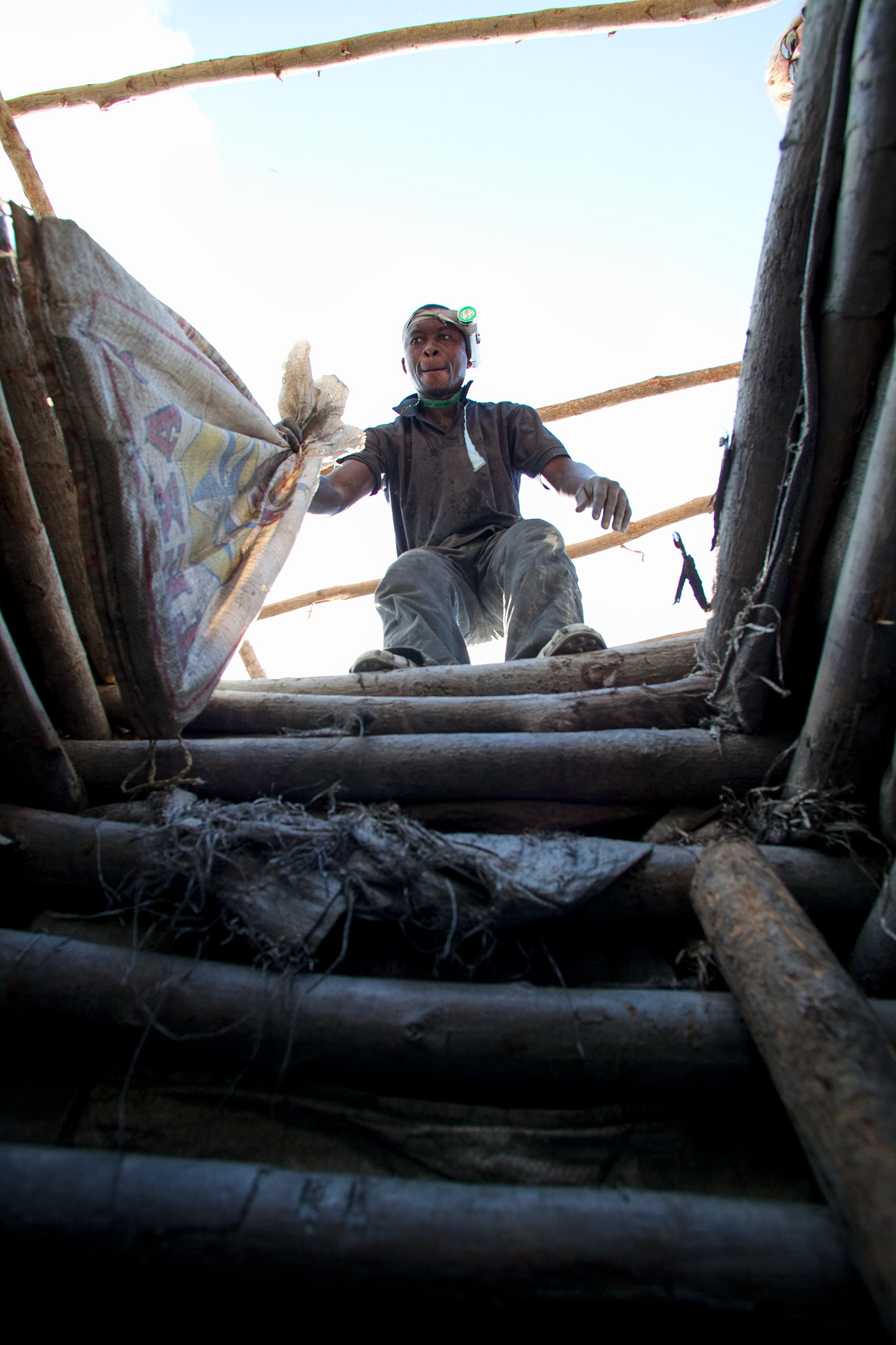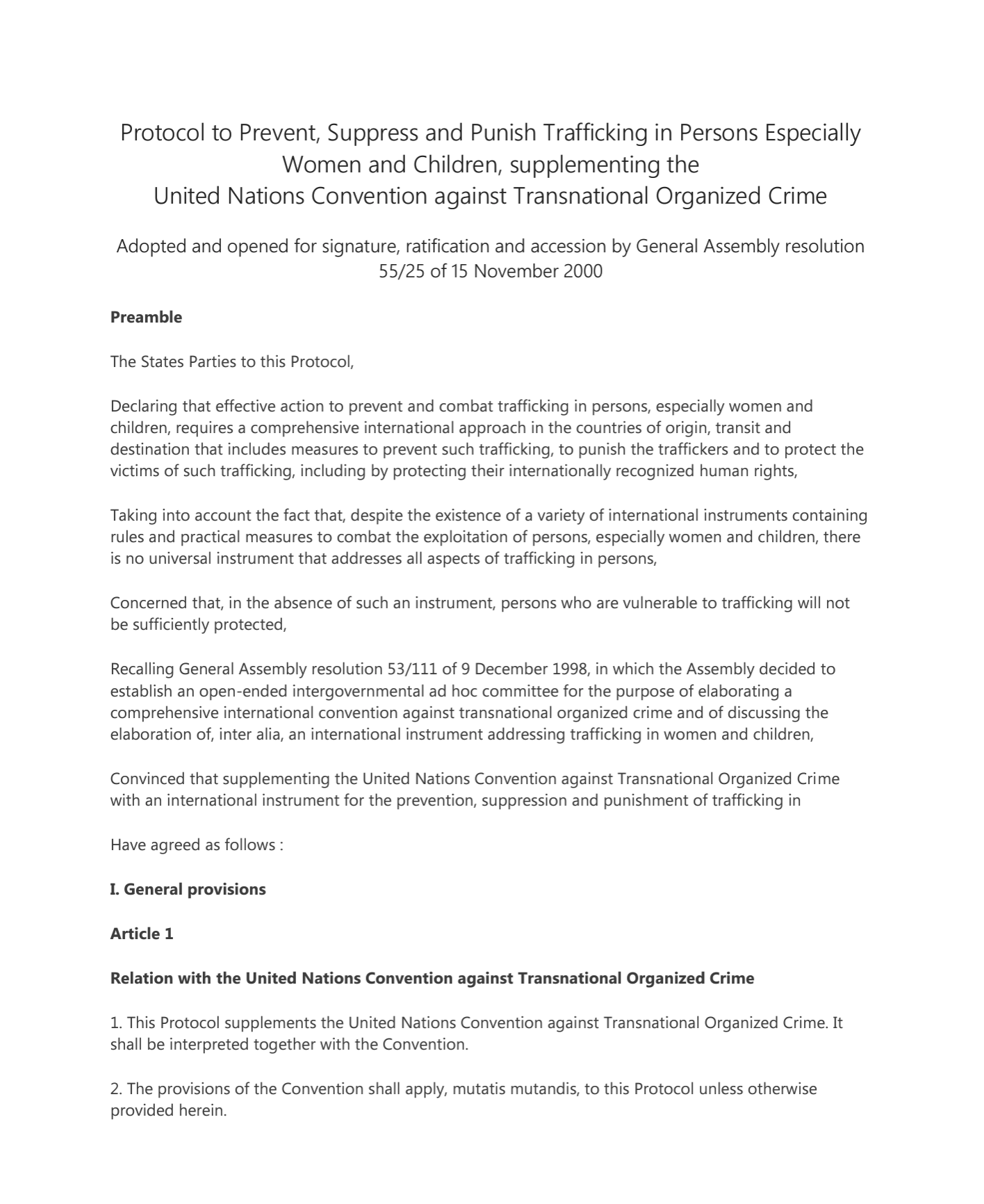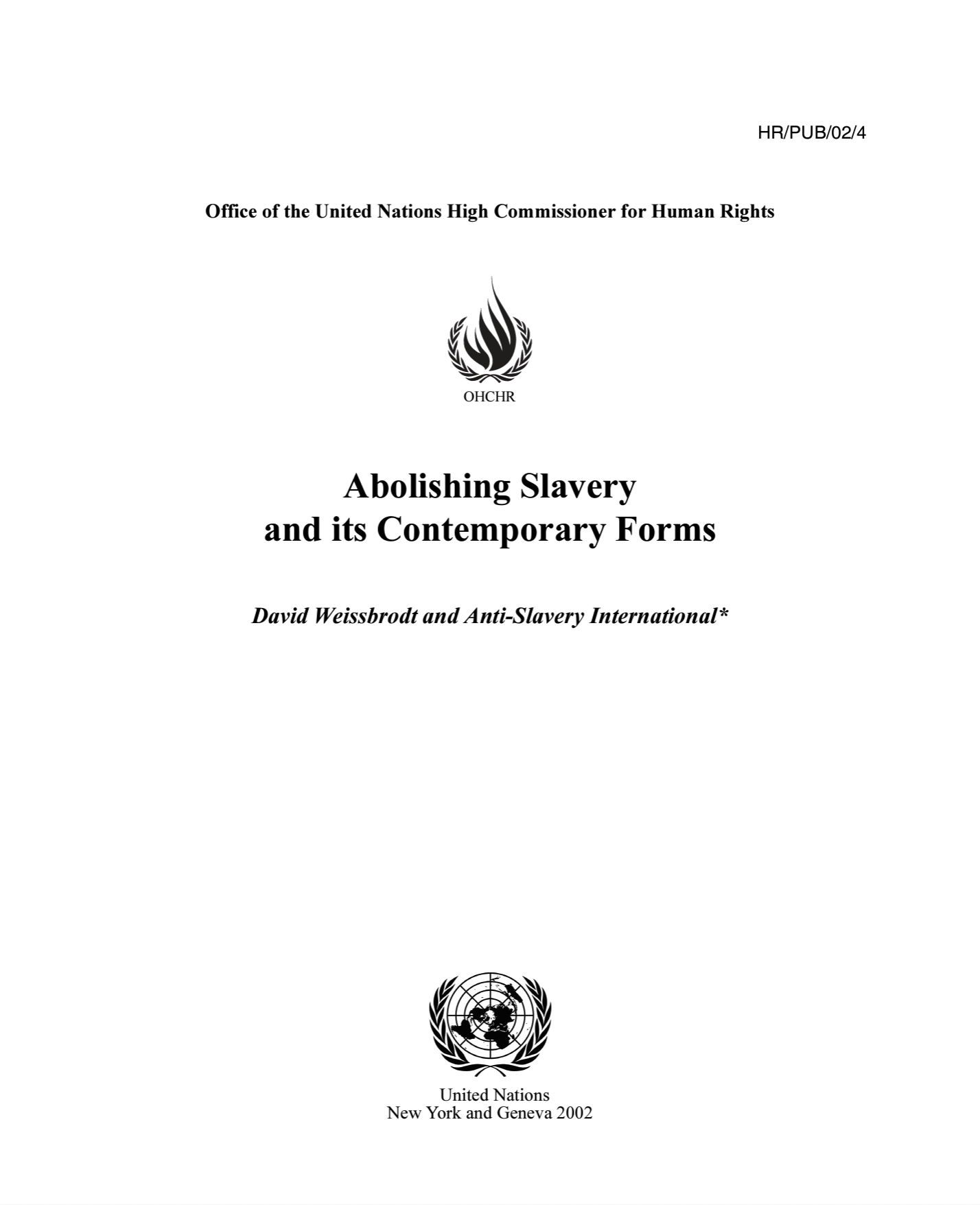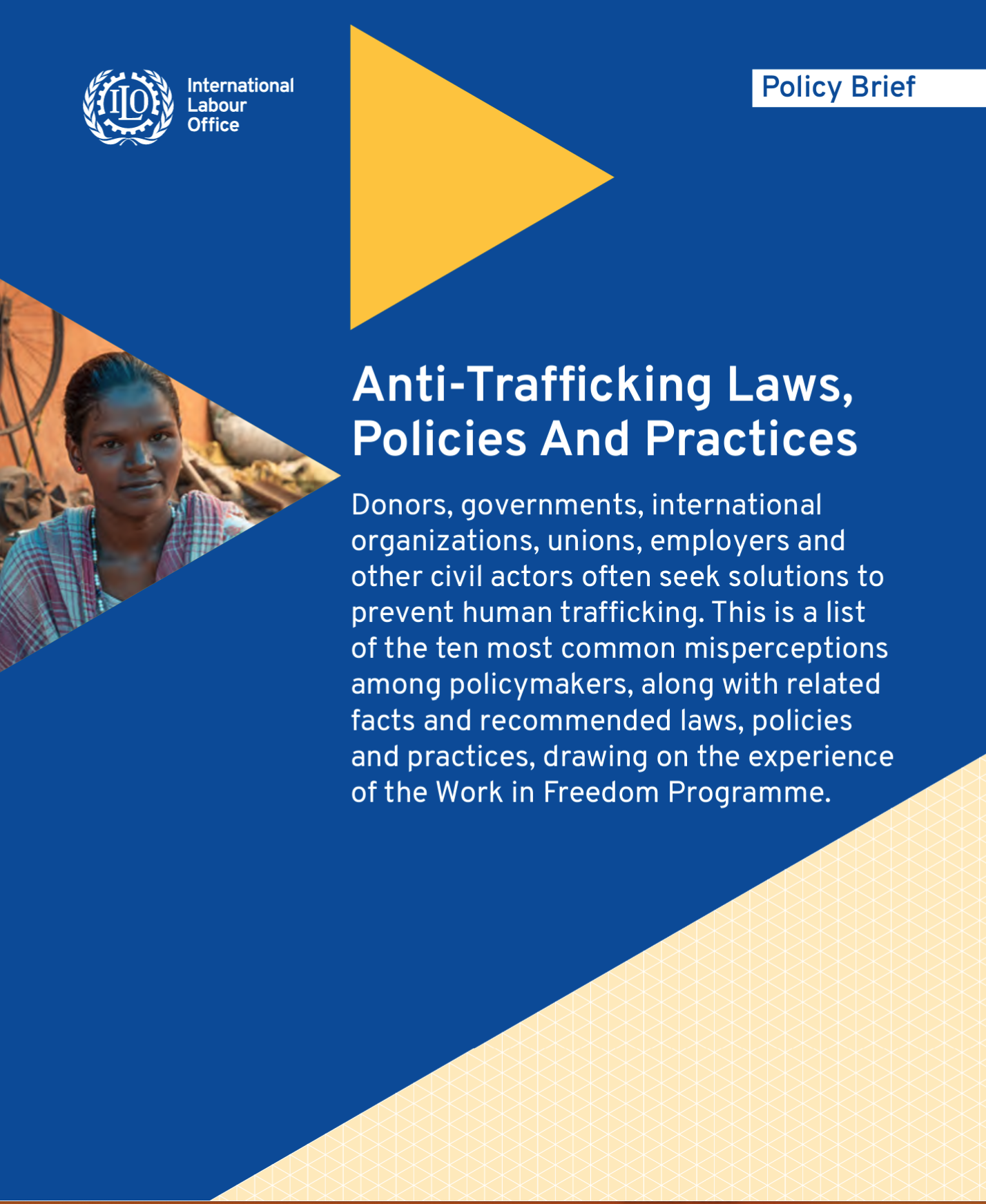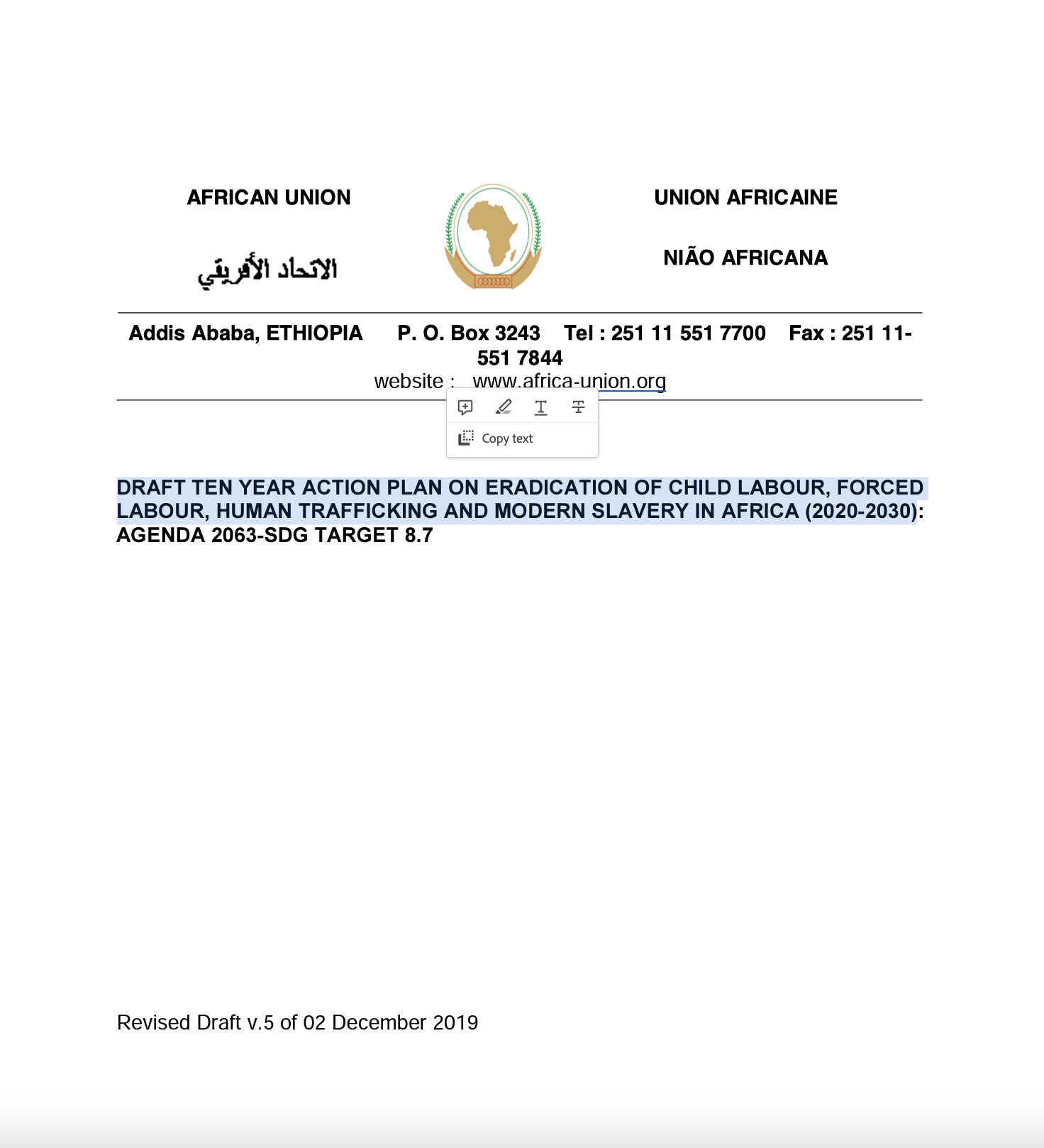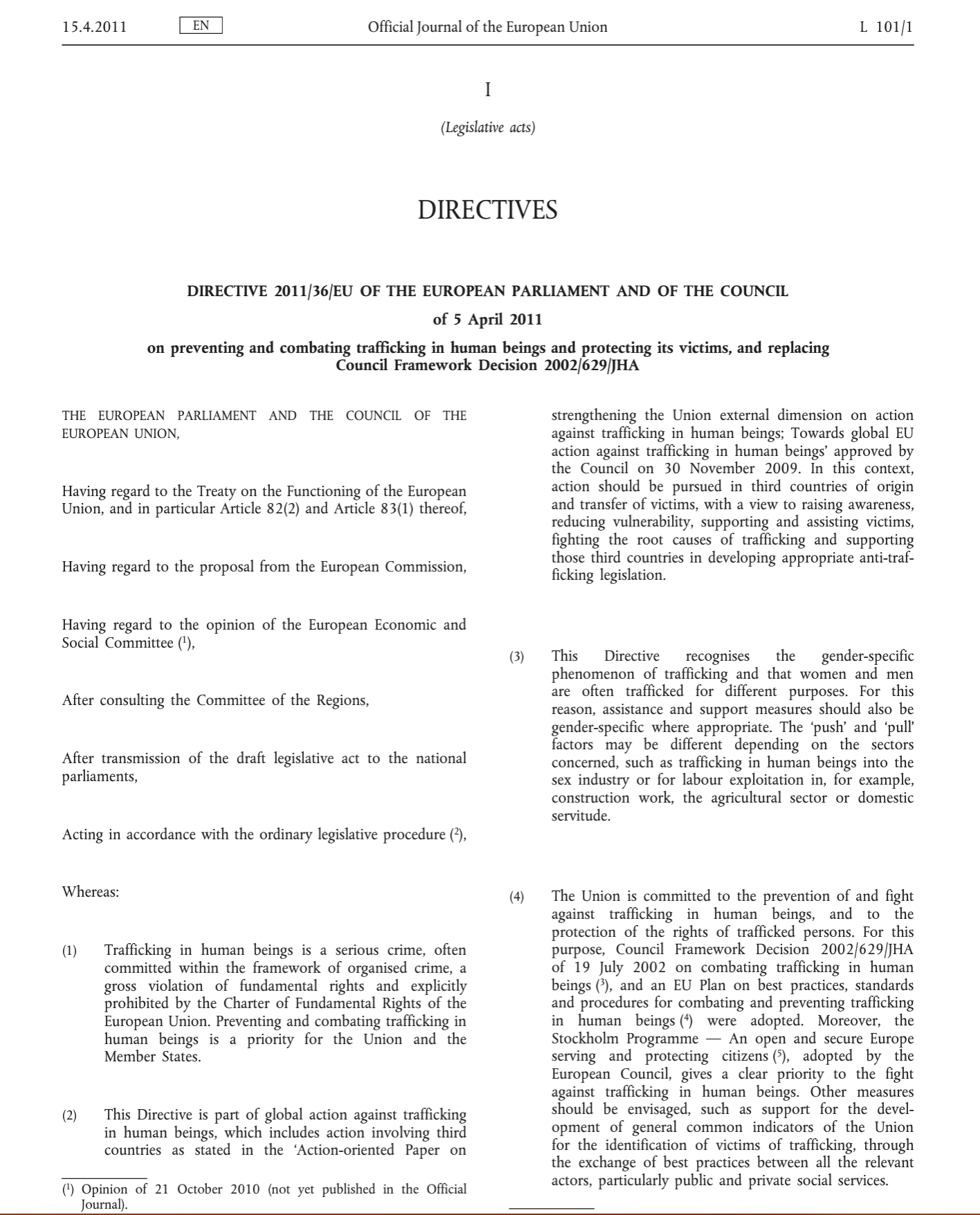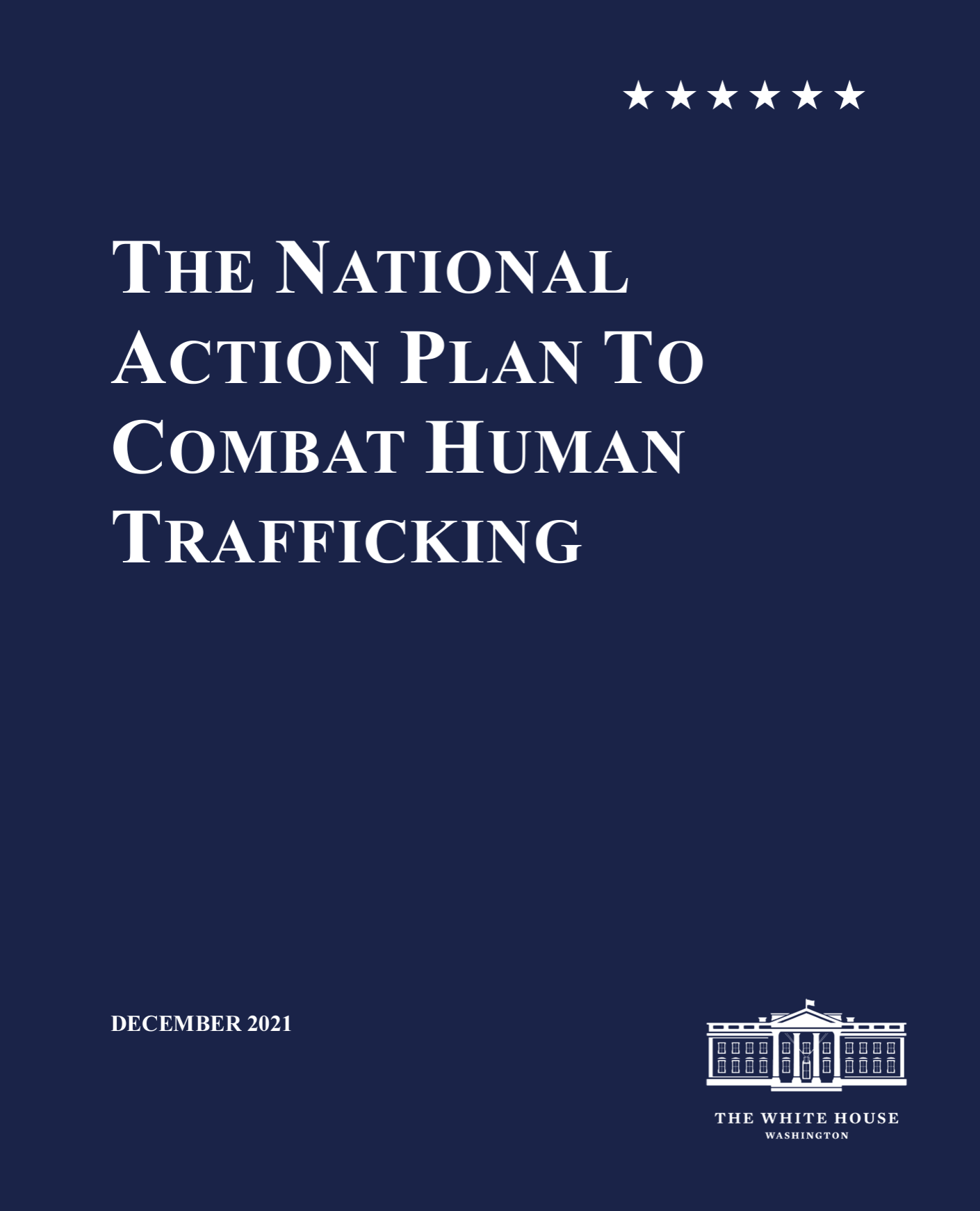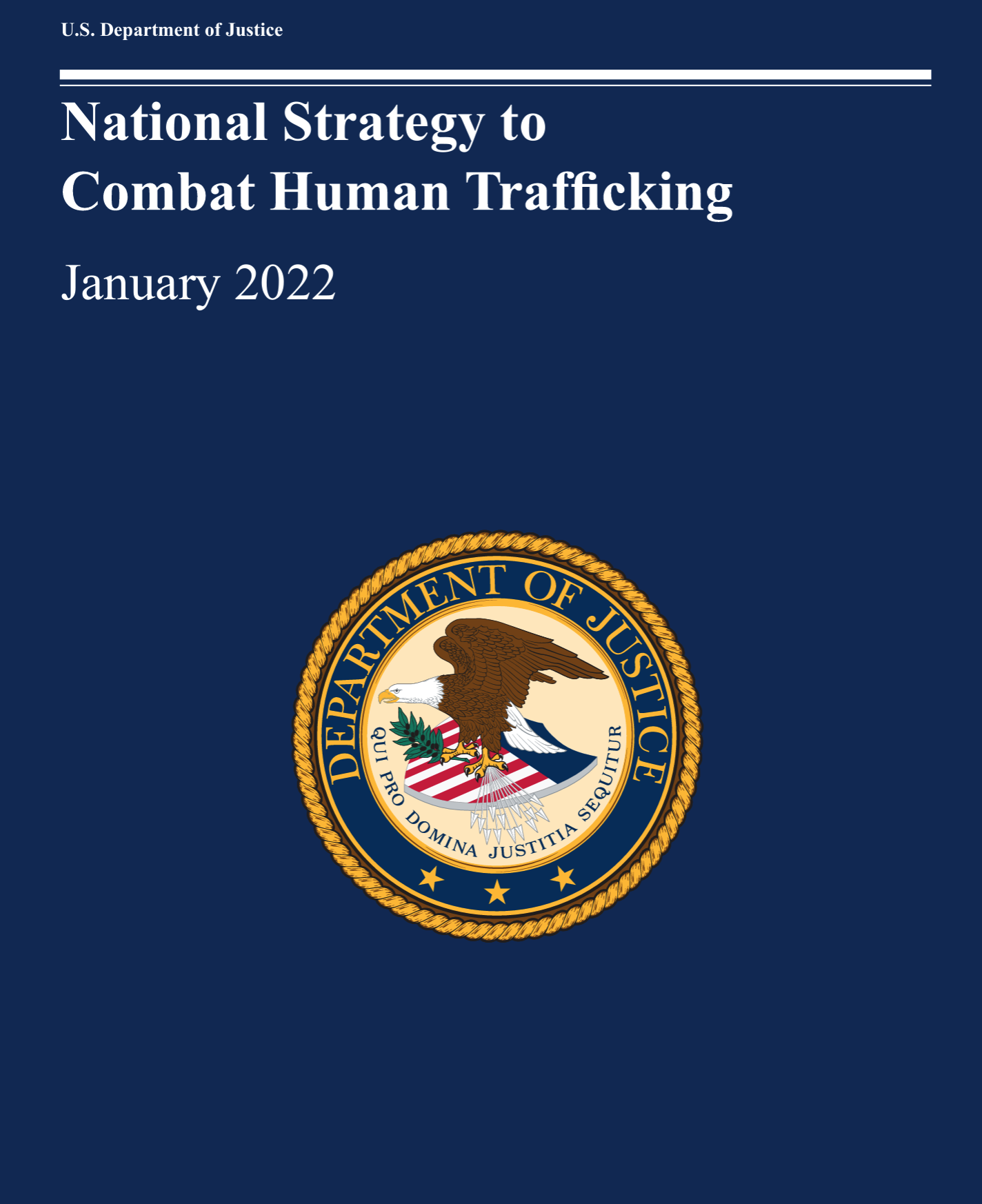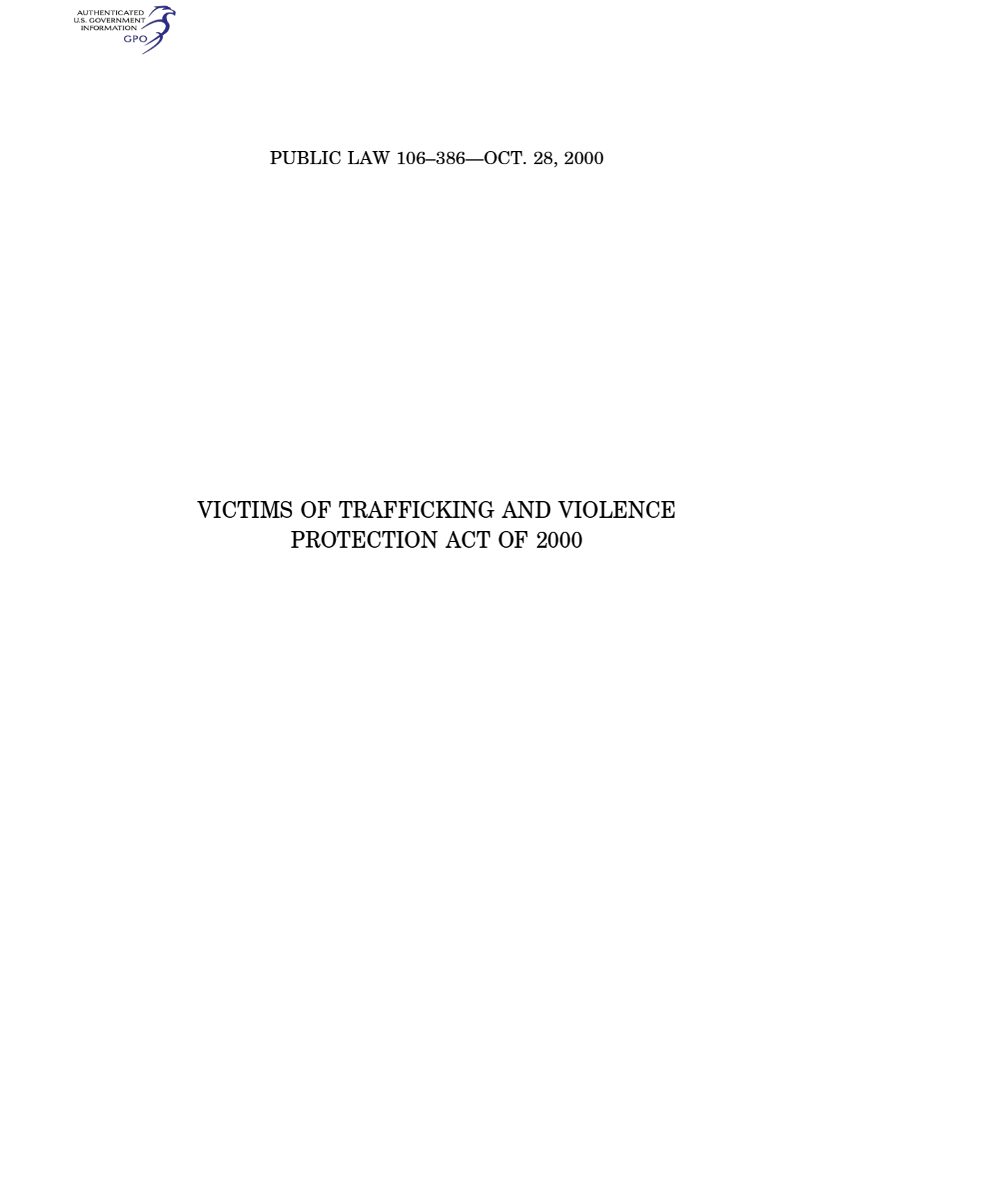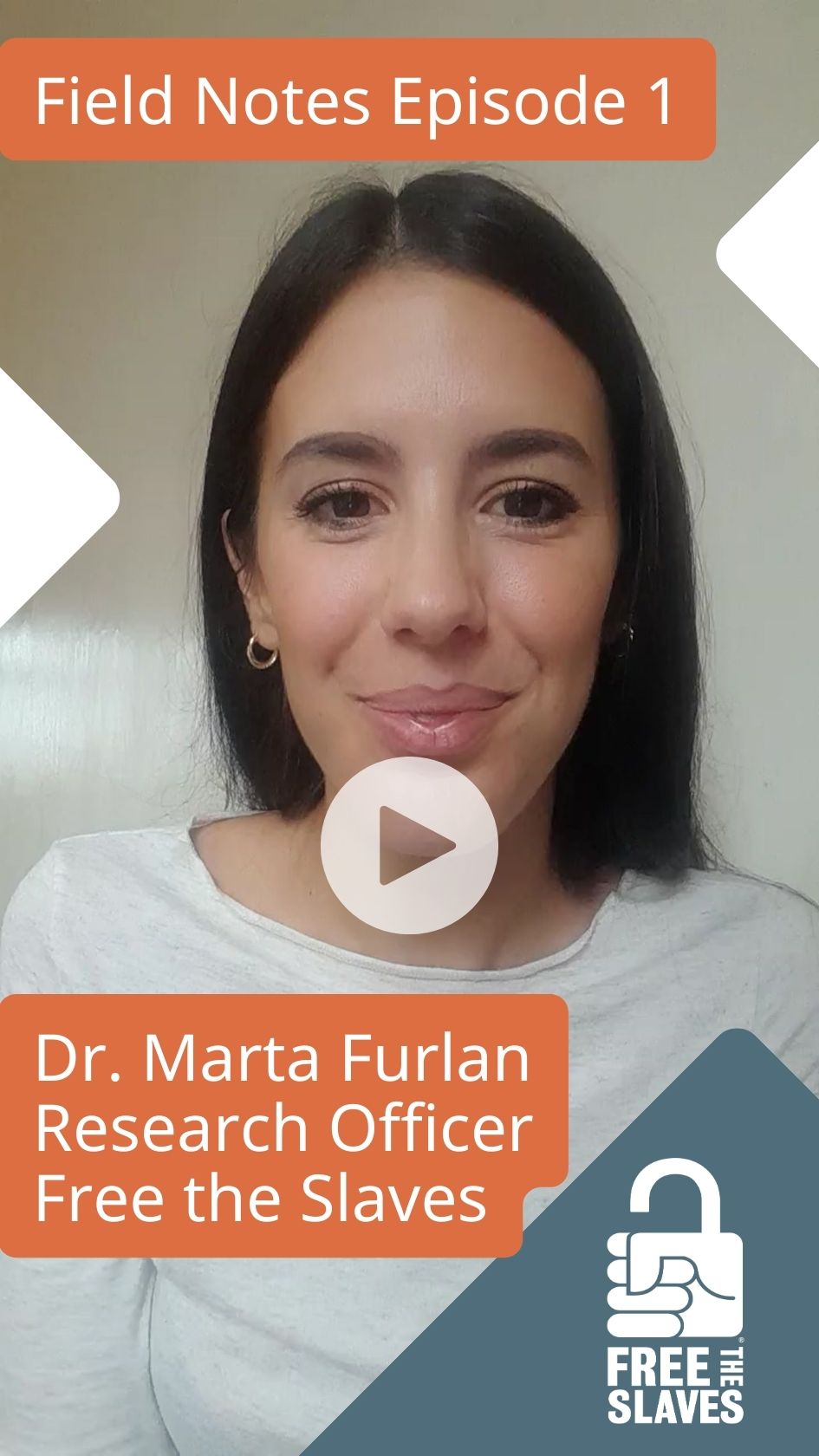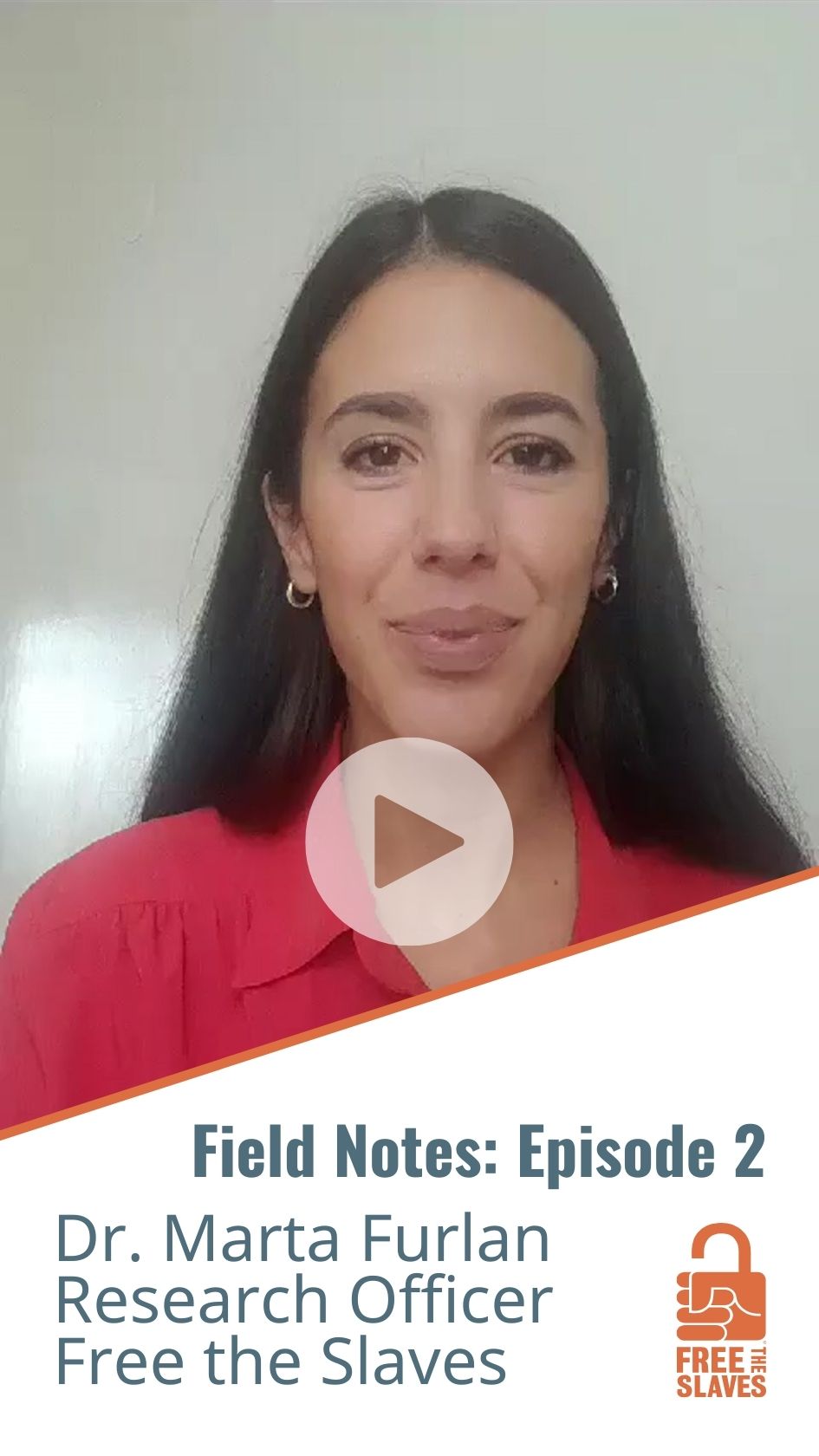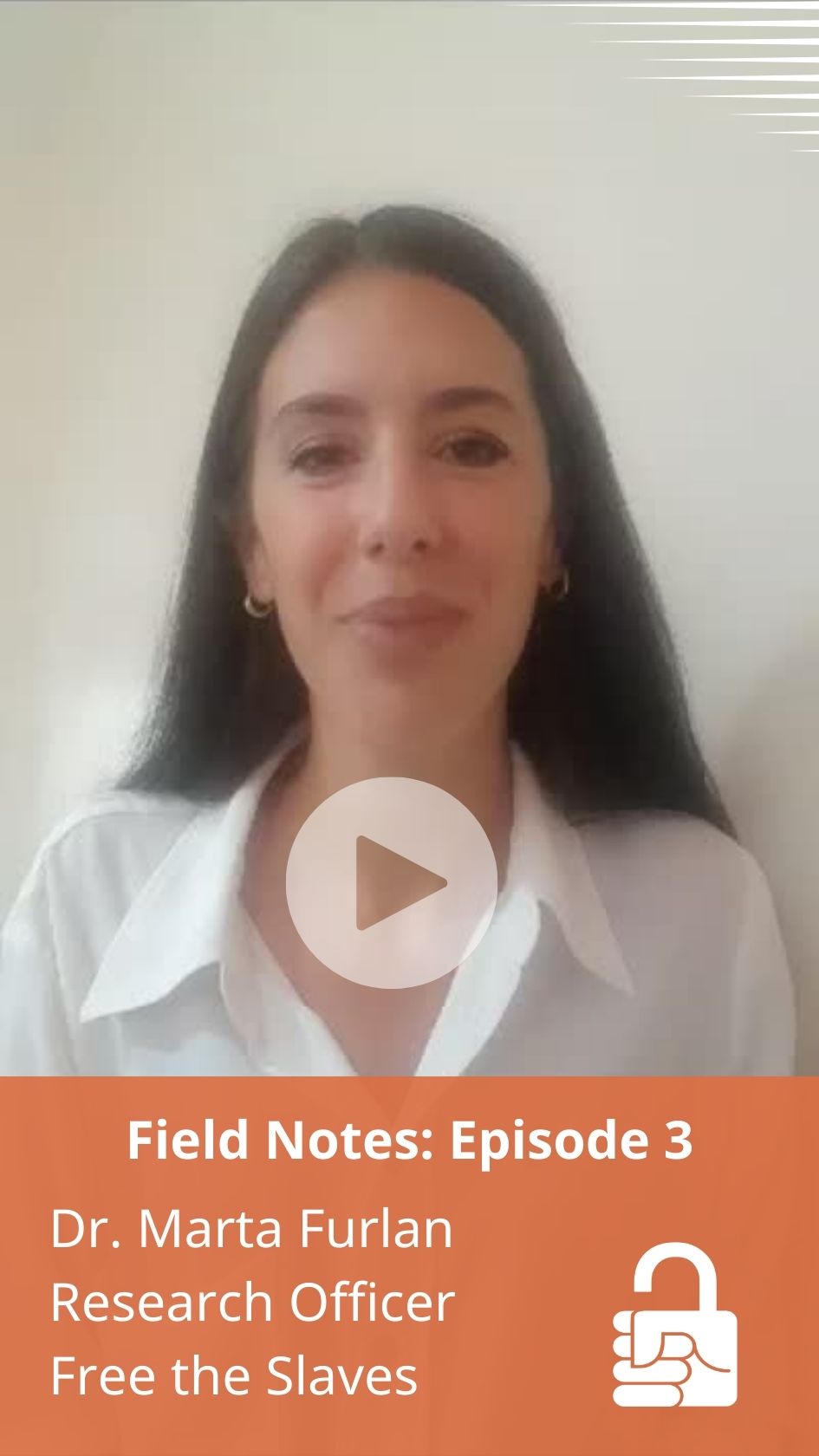Research & Publications
Research is an integral component of Free the Slaves’ Theory of Change. Our Research Program aims to generate evidence that will:
Guide our Programming
Helping us to design and implement anti-slavery programs that are accurately informed, locally based, and properly targeted, and therefore more effective in addressing the realities of modern slavery that affect vulnerable individuals and communities in determined geographies
Sustain our Advocacy Efforts
This enables us to develop and launch advocacy campaigns that are built on accurate data and solid analyses, and therefore capable of directing attention toward critical issues and suggesting realistic solutions
Expand our Partnerships
With academic institutions doing research on modern slavery and with local non-governmental organizations working to end modern slavery in their geographies.
Enhance our Understanding
Understanding the communities and geographies where we work. This knowledge helps us to always be sensitive, responsible, respectful, and responsive, and to always be true to our guiding values and principles
Our Approach to Research
At Free the Slaves, we are committed to produce research that is:
Participatory
Adopting a Participatory Action Research methodology, we empower slavery-affected communities and survivors of modern slavery to actively participate in the production of knowledge through a series of targeted approaches, trainings, and activities.
Community-Centered
Throughout all the phases of our research (development, implementation, dissemination), we have the communities’ interests as our priority, the community’s rights as our compass, and the communities’ benefit as our objective. The same principles guide our research projects with survivors of modern slavery. We refrain from engaging in research projects that fail to account for how they can benefit communities and survivors.
Impact-Oriented
We believe that the value of our research lies in its impact. Therefore, data collection and data analysis are always followed by the formulation of targeted and actionable recommendations. We also rely on the evidence generated through research to shape our programs accordingly.
Context Specific
Ethical
Working closely with vulnerable individuals and communities who put their trust in us, we are profoundly committed to producing ethical and responsible research. In this regard, we have developed a Research Ethical Protocol and an Ethical Assessment Form that guide all our research.
Partnerships
Partnerships have always been a pillar of Free the Slaves’ work, and the Research Program is no exception. Believing that research can benefit immensely from cooperative efforts, Free the Slaves welcomes research partnerships with academic institutions, research centers, civil society, and non-governmental organizations. In this regard, we especially value cooperative research projects in which the unique expertise of each partner is allowed to shape and influence the project design, implementation, and dissemination. At Free the Slaves, we see community engagement and community participation as the main strength of our Research Program, and we are looking forward to working with partners who can complement our strength with theoretical and conceptual expertise.
At the very minimum, we are pursuing partnerships with institutions and organizations that share our same commitment to participatory, community- centered, and impact-oriented research.
If you are interested in exploring the possibility of a research partnership with us, please send us an email to: marta.furlan@freetheslaves.net
Research Agenda 2024-2025
The Research Agenda is a living document that Free the Slaves will update on a regular basis to reflect the progress of its ongoing and upcoming research projects.
Ongoing
Estimated Publication in 2024
Ongoing
Estimated Publication in 2025
Completed
Estimated Publish Date in 2024
Completed
Dissemination Throughout 2024
Completed
Dissemination Throughout 2024
Completed
Dissemination Throughout 2024 (Meet Us At ARAT2024)
Publications by Topic
Click the study title to learn more and get the download link.
Children & Modern Slavery
Blank
Cote d' Ivore– Forced Labor and Child Labor in Cote d' Ivore's Cocoa Sector
Children are also significantly affected, with child trafficking being a common method for forcing them into labor on cocoa farms. These children, often recruited under false promises, endure long hours, physical violence, and minimal compensation. In Côte d’Ivoire, child labor is also embedded in the rural economy, with children often working within their own families or for extended relatives under systems that expose them to dangerous conditions, impacting their health, development, and education.
As deadlines approach under the Harkin-Engel Protocol and the Sustainable Development Goals, there is an urgent need for action from all stakeholders, including cocoa companies, governments, civil society, and consumers, to eliminate forced labor and child labor in the cocoa industry.
Cameroon – Forced Labor and Child Labor in Cameroon's Cocoa Sector
The production of cocoa in Cameroon, the world’s fourth-largest cocoa producer, reveals significant issues of forced labor and child exploitation. Migrant workers, both internal from conflict-affected regions within Cameroon and undocumented foreigners, are particularly vulnerable. These workers, often lacking any formal contracts, are coerced into labor under dire conditions, including exposure to hazardous chemicals without protective gear. Even prisoners are forcibly brought to work on cocoa farms under dubious agreements.
Children, too, are heavily impacted, often trafficked from neighboring countries by fake recruiters and sold into grueling labor on Cameroon’s cocoa farms. These children endure long hours, abuse, and unsafe working conditions that harm their health, safety, and development.
Child labor within families is also pervasive, driven by the rural economy’s reliance on familial agriculture. This work, while essential for household survival, often involves dangerous tasks that are detrimental to children’s well-being.
Ghana – Forced Labor and Child Labor In Ghana’s Cocoa Sector
Cocoa production in Ghana, the world’s second-largest producer, has long been associated with forced labor and child labor. Despite various initiatives, these exploitative practices remain prevalent, especially among migrant workers and children. Adult forced labor is often characterized by lack of contracts, extremely low wages, and debt bondage. Child labor, often seen as a necessary part of family agriculture, exposes children to hazardous conditions like handling sharp tools, carrying heavy loads, and exposure to chemicals.
Ghana’s cocoa industry is plagued by systemic issues such as poverty, lack of education, and inadequate law enforcement, which perpetuate the exploitation of workers. As the 2025 and 2030 deadlines approach for eliminating these practices under international agreements, it is clear that a coordinated effort involving governments, companies, civil society, and consumers is urgently needed to bring about meaningful change.
This report highlights the ongoing challenges in Ghana’s cocoa sector and calls for a comprehensive approach to address the root causes of forced and child labor.
Nigeria – Forced Labor and Child Labor In Nigeria’s Cocoa Sector
Cocoa production in Nigeria, the world’s fifth-largest producer, is heavily reliant on small family farms, where forced labor and child labor are alarmingly prevalent. Adult forced labor is common among migrant workers, who are often trafficked and exploited under harsh conditions, including inadequate pay and abusive living situations. These workers, along with children, are often isolated on farms, with little access to support or alternatives.
Child labor is widespread within family-run cocoa farms, where children are seen as necessary contributors to the household economy. Many of these children are engaged in hazardous work, such as using sharp tools and handling chemicals, which poses significant risks to their health and development. Despite international and local efforts to address these issues, including laws and policies, significant gaps remain in enforcement and education, allowing these exploitative practices to persist.
To combat forced labor and child labor in Nigeria’s cocoa sector, a comprehensive approach involving governments, companies, civil society, and consumers is urgently needed. This report calls for stronger regulations, better education and awareness campaigns, and more robust support systems for farmers and workers to break the cycle of exploitation in the cocoa industry.
Child Labor in the Streets of Gabon
Gabon ranks as the 7th country in Africa with the highest prevalence of modern slavery, with child exploitation being particularly rampant. In Gabon’s streets, children are subjected to various forms of labor, including street vending, forced labor, street begging, scavenging, and, for girls, commercial sexual exploitation. This research sheds light on the often-overlooked exploitation of children in Gabon’s urban areas, where abuse occurs in plain sight yet remains insufficiently studied.
Children in Gabon’s streets face multiple intersecting forms of exploitation. For example, a girl who sells goods during the day may be forced into domestic servitude at night, performing chores for her traffickers. In addition to these forms of labor, children often suffer from physical abuse, food deprivation, and lack of access to proper clothing and healthcare.
To address this pervasive issue, the research recommends increased investment in social protection, education, and birth registration, alongside stronger efforts to prevent, protect against, and prosecute child trafficking in Gabon.
Ghana - Trafficking's Footprint: Two-Phase Baseline Studies of Child Trafficking in 34 Communities in 6 Districts in Ghana
Child trafficking is widespread in Ghana – for fishing, mining, farming, domestic servitude and prostitution. Researchers uncover the prevalence and drivers of child trafficking in this report, and identify promising interventions designed to liberate victims, support survivors, and prevent future enslavement.
Haiti - Haiti's Model Communities: Ending Restavek Child Domestic Servitude
Restavèk is a traditional system in which Haitian children are sent to live with other families and work as domestic servants. The expectation is for the host family to provide schooling, food, and shelter. Yet many children are abused and enslaved in their new homes. The Model Communities project is based on the premise that building community consensus against >restavèk is a strong strategy to prevent and reverse the flow of children into domestic servitude.
Ghana - Child Rights in Mining: Pilot Project Results & Lessons Learned
India - Recovering Childhoods: Combating Child Trafficking in Northern India
This report investigates the problem of—and solutions to—child trafficking in northern India. We highlight some of the stark realities that underpin trafficking today, and some recommendations for bringing it to an end. We are clear that child trafficking is not an intractable problem, but it is one that deserves and requires focused and well-informed long-term strategies.
Informal Economies & Modern Slavery
Blank
Peru - Between Neglect and Exploitation: Four Case Studies in Indigenous Communities in the Peruvian Amazon
Between Neglect and Exploitation: Four Case Studies in Indigenous Communities of the Peruvian Amazon contains findings from research by FTS and ONOTZI, a Peruvian indigenous rights organization. The research examines the linkages between illegal extractivism, human trafficking risk, and climate change in the Peruvian Amazon. The research points to the ways that human trafficking is driven by illegal mining and logging, and drug trafficking. Indigenous persons live in conditions that place them at a high risk of human trafficking. The research identifies diverse forms of modern slavery manifesting in communities. Adults work in conditions characteristic of forced labor and human trafficking for sexual and labor exploitation. Forced child marriages are normalized, and adolescents are also trafficked for labor and sexual exploitation. The report calls on the Peruvian state to implement a range of recommendations that address the root causes of human trafficking among indigenous communities and safeguards their human rights.
English Full Report
English Executive Summary
Informe completo en español
Resumen ejecutivo en español
Ashaninka Full Report
Ashaninka Executive Summary
Forced Labor in Supply Chains: The Case of Canada
Global supply chains, while contributing to economic growth and job creation, have also become breeding grounds for forced labor and exploitation. The complexity and length of these supply chains have made it difficult to monitor and regulate labor practices, leading to widespread human rights abuses. Recent statistics reveal that nearly two-thirds of all forced labor cases—impacting 17.3 million people—are linked to global supply chains, particularly in sectors like agriculture, mining, and construction, where the risk is highest due to low wages and the prevalence of informal labor.
This issue is exacerbated by the lack of adequate regulatory frameworks in many developed countries, including Canada. Despite some legislative steps forward, Canada still lags behind other G20 nations in addressing modern slavery in supply chains. To effectively combat this, a comprehensive approach involving the government, corporations, investors, civil society, and consumers is essential. This research underscores the urgent need for the Canadian government to adequately enforce due diligence legislation and for Canadian companies to adopt responsible business practices that respect human rights throughout their supply chains.
Congo - Congo’s Mining Slaves: Enslavement at South Kivu Mining Sites
This Free the Slaves field investigation documents the types, nature, and scale of slavery at major mining sites in the South Kivu province. It also analyzes the factors that make Congolese workers vulnerable to enslavement and recommends solutions.
Climate Change – Environmental Degradation & Modern Slavery
Blank
Philippines: Human Trafficking and Climate Change: Understanding Intersections and Strengthening Responses in the Philippines
Human Trafficking and Climate Change: Understanding Intersections and Strengthening Responses in the Philippines contains findings from research by FTS and JPIC-IDC. The research examines the linkages between climate change, climate change-related hazards, and human trafficking in the regions of Eastern Visayas and Caraga (Eastern Philippines). The research finds that communities affected by climate change become exposed to the risk of exploitation by human traffickers. Exploitation can take different forms, but in Eastern Visayas and Caraga it is mostly labor trafficking and forced labor, child hazardous labor, sexual trafficking, commercial sexual exploitation of children (CSEC), and online sexual exploitation of children (OSEC). Recognizing that natural hazards heighten the vulnerability of individuals and communities to exploitation by human traffickers, actions that address climate change-related vulnerabilities become a much-needed strategy to end the conditions that allow human trafficking to exist.
Peru - Between Neglect and Exploitation: Four Case Studies in Indigenous Communities in the Peruvian Amazon
English Full Report
English Executive Summary
Informe completo en español
Resumen ejecutivo en español
Ashaninka Full Report
Ashaninka Executive Summary
Congo - Congo’s Mining Slaves: Enslavement at South Kivu Mining Sites
This Free the Slaves field investigation documents the types, nature, and scale of slavery at major mining sites in the South Kivu province. It also analyzes the factors that make Congolese workers vulnerable to enslavement and recommends solutions.
Ghana - Child Rights in Mining: Pilot Project Results & Lessons Learned
Gold mining is one of Ghana’s major industries—gold exports are one of the country’s biggest sources of income. But at many mining sites, children are exploited as workers. The Child Rights in Mining pilot project addressed the lack of awareness and protection of child rights, which cause hazardous child labor practices and sexual violence against children. Using illustrated drawings based on the lives of local residents, the project educated parents on the rights of children and how to protect them.
Nepal - Understanding Vulnerabilities and Strengthening Responses
Nepal’s 2015 earthquake killed thousands, left large parts of the country in ruins, and sparked a sharp rise in human trafficking. This action-research project documented the post-earthquake experience in Nepal, and provided essential action-step recommendations to ensure that desperate and vulnerable people aren’t enslaved in the aftermath of natural disasters around the globe.
Women & Modern Slavery
Blank
Congo - Wives in Slavery: Forced Marriage in the Congo
Every person has the right to freely choose his or her spouse. But for many women and girls in the Democratic Republic of the Congo, marriage is coerced and a form of slavery. This exposè examines the causes and impacts of forced marriage in the Congo through the stories of women and girls who have experienced it firsthand.
United Nations, Civil Society, and Modern Slavery
Blank
Modern slavery and the United Nations Security Council
This report co-authored by the Rights Lab at the University of Nottingham and Free the Slaves presents the findings of a study on modern slavery as a security concern within the United Nations Security Council (UNSC). The report examines the intersections between modern slavery and key agendas of the UNSC to support improved efforts to combat modern slavery in security contexts through advocacy, policies, and operations. The analysis reviews the existing interests of the UNSC in addressing modern slavery in conflict in its key global agendas – Women, Peace and Security, Children and Armed Conflict, and Protection of Civilians in Armed Conflict. The study also provides a review of UNSC documents adopted or issued from 1990 to 2022, analysing the extent to which the UNSC has addressed slavery and related practices in carrying out its mandate. Crucially, the study identifies the current dynamics and opportunities for antislavery advocacy at the level of the UNSC, entry and leverage points, barriers and challenges, and other factors relevant to advancing antislavery in the global security agenda.
SE Asia - Learning From NGO's Approaches to Modern Slavery
FTS’ recent report “Learning from NGOs’ Approaches to Modern Slavery in Southeast Asia” highlights findings learning from 64 surveys with representatives of organizations addressing modern slavery in Southeast Asia. Read more below to understand how organizations are defining modern slavery, the approaches that are being adopted, and the activities implemented to address severe exploitation. The report also highlights some of the existing gaps affecting the response and provides recommendations for improved multi-stakeholder action against modern slavery.
Operationalizing the Movement Behind SDG 8.7
Civil society plays a critical role in raising awareness, advocating with governments to take robust action and developing new interventions to disrupt slavery and aid its survivors. This study, co-authored by Deloitte and Free the Slaves, explores the goals, norms and policy priorities for civil society coalitions within the anti-slavery movement.
MENA - Modern Slavery in the Middle East & North Africa
Indigenous Communities & Modern Slavery
Blank
Peru - Between Neglect and Exploitation: Four Case Studies in Indigenous Communities in the Peruvian Amazon
English Full Report
English Executive Summary
Informe completo en español
Resumen ejecutivo en español
Ashaninka Full Report
Ashaninka Executive Summary
Survivor Engagement
Blank
Survivors and Organizations Working Together Against Human Trafficking: Insights from East and Central Africa
Survivors possess invaluable insights into the root causes and consequences of human trafficking due to their lived experiences. However, meaningful survivor engagement in anti-trafficking efforts remains limited. This research focuses on East and Central Africa, aiming to provide anti-trafficking organizations with recommendations for improving survivor engagement practices.
Using a mixed-method approach, including interviews with 18 survivors from various countries in the region, online surveys, and workshops, the study highlights the importance of involving survivors not only as respondents but also as researchers. Survivors were trained in qualitative research skills, actively contributing to data collection, analysis, and the development of key findings and recommendations.
The research offers recommendations to enhance survivor engagement, focusing on areas such as organizational culture, survivor networks, finances and employment, capacity building, and security.
Covid-19 – Health Emergencies & Modern Slavery
Blank
Senegal and Kenya - Building Resilience Against Exploitation in Senegal and Kenya in the Context of Covid-19
This study highlights how systemic factors that contribute to resilience against exploitation are being impacted by Covid-19 in urban centers within Senegal and Kenya. The research provides evidence toward effective targeting, adaptation and implementation of anti-slavery interventions in the wake of Covid-19. It offers suggestions on how to limit negative impacts arising from the pandemic and where to direct policy, practice and funding attention for ongoing benefit. Research conducted and published in 2021 in partnership with the University of Nottingham Rights Lab.
Summary English
Kenya Report English
Senegal Report English, French
Comparative Report English, French
Survivors and Organizations Working Together Against Human Trafficking: Insights from East and Central Africa
Survivors possess invaluable insights into the root causes and consequences of human trafficking due to their lived experiences. However, meaningful survivor engagement in anti-trafficking efforts remains limited. This research focuses on East and Central Africa, aiming to provide anti-trafficking organizations with recommendations for improving survivor engagement practices.
Using a mixed-method approach, including interviews with 18 survivors from various countries in the region, online surveys, and workshops, the study highlights the importance of involving survivors not only as respondents but also as researchers. Survivors were trained in qualitative research skills, actively contributing to data collection, analysis, and the development of key findings and recommendations.
The research offers recommendations to enhance survivor engagement, focusing on areas such as organizational culture, survivor networks, finances and employment, capacity building, and security.
Migration and Modern Slavery
Blank
From Illegal Migration to Human Trafficking: Dangerous Journeys Across the Horn of Africa and The Arabian Peninsula
The migration route from the Horn of Africa to the Arabian Peninsula through Yemen is one of the most significant in the world, accounting for 40% of continental migratory movements. In 2023 alone, over 86,000 people made this journey between January and July. The primary drivers of this migration include poverty, climate change, food and water insecurity, conflict, and ethnically motivated violence.
Due to limited legal migration options and the complexities of navigating those that exist, many migrants resort to irregular channels facilitated by smugglers. This reliance significantly increases their vulnerability to human trafficking, particularly at three critical stages: during their transit through Djibouti and Somalia, upon arrival in Yemen, and when reaching Gulf states like Saudi Arabia.
The forms of trafficking encountered on this route are severe and varied, including sex trafficking, forced labor in hazardous conditions, domestic servitude, debt bondage, and the worst forms of child labor, such as forced begging and sexual exploitation.
Publications by Location
Click the study title to learn more and get the download link.
East and Central Africa
Blank
Survivors and Organizations Working Together Against Human Trafficking: Insights from East and Central Africa
Survivors possess invaluable insights into the root causes and consequences of human trafficking due to their lived experiences. However, meaningful survivor engagement in anti-trafficking efforts remains limited. This research focuses on East and Central Africa, aiming to provide anti-trafficking organizations with recommendations for improving survivor engagement practices.
Using a mixed-method approach, including interviews with 18 survivors from various countries in the region, online surveys, and workshops, the study highlights the importance of involving survivors not only as respondents but also as researchers. Survivors were trained in qualitative research skills, actively contributing to data collection, analysis, and the development of key findings and recommendations.
The research offers recommendations to enhance survivor engagement, focusing on areas such as organizational culture, survivor networks, finances and employment, capacity building, and security.
From Illegal Migration to Human Trafficking: Dangerous Journeys Across the Horn of Africa and The Arabian Peninsula
The migration route from the Horn of Africa to the Arabian Peninsula through Yemen is one of the most significant in the world, accounting for 40% of continental migratory movements. In 2023 alone, over 86,000 people made this journey between January and July. The primary drivers of this migration include poverty, climate change, food and water insecurity, conflict, and ethnically motivated violence.
Due to limited legal migration options and the complexities of navigating those that exist, many migrants resort to irregular channels facilitated by smugglers. This reliance significantly increases their vulnerability to human trafficking, particularly at three critical stages: during their transit through Djibouti and Somalia, upon arrival in Yemen, and when reaching Gulf states like Saudi Arabia.
The forms of trafficking encountered on this route are severe and varied, including sex trafficking, forced labor in hazardous conditions, domestic servitude, debt bondage, and the worst forms of child labor, such as forced begging and sexual exploitation.
Senegal and Kenya - Building Resilience Against Exploitation in Senegal and Kenya in the Context of Covid-19
This study highlights how systemic factors that contribute to resilience against exploitation are being impacted by Covid-19 in urban centers within Senegal and Kenya. The research provides evidence toward effective targeting, adaptation and implementation of anti-slavery interventions in the wake of Covid-19. It offers suggestions on how to limit negative impacts arising from the pandemic and where to direct policy, practice and funding attention for ongoing benefit. Research conducted and published in 2021 in partnership with the University of Nottingham Rights Lab.
Summary English
Kenya Report English
Senegal Report English, French
Comparative Report English, French
Congo - Congo’s Mining Slaves: Enslavement at South Kivu Mining Sites
This Free the Slaves field investigation documents the types, nature, and scale of slavery at major mining sites in the South Kivu province. It also analyzes the factors that make Congolese workers vulnerable to enslavement and recommends solutions.
Congo - Wives in Slavery: Forced Marriage in the Congo
Every person has the right to freely choose his or her spouse. But for many women and girls in the Democratic Republic of the Congo, marriage is coerced and a form of slavery. This exposè examines the causes and impacts of forced marriage in the Congo through the stories of women and girls who have experienced it firsthand.
West Africa
Blank
Cote d' Ivore– Forced Labor and Child Labor in Cote d' Ivore's Cocoa Sector
The production of cocoa, especially in Côte d’Ivoire—the world’s largest cocoa exporter—reveals a troubling reality of human trafficking, forced labor, and child labor. Migrant workers from northern Côte d’Ivoire, Burkina Faso, and Mali are particularly vulnerable. These workers often find themselves trapped in exploitative conditions, with withheld wages, verbal-only agreements, and significant debts incurred through recruitment.
Children are also significantly affected, with child trafficking being a common method for forcing them into labor on cocoa farms. These children, often recruited under false promises, endure long hours, physical violence, and minimal compensation. In Côte d’Ivoire, child labor is also embedded in the rural economy, with children often working within their own families or for extended relatives under systems that expose them to dangerous conditions, impacting their health, development, and education.
As deadlines approach under the Harkin-Engel Protocol and the Sustainable Development Goals, there is an urgent need for action from all stakeholders, including cocoa companies, governments, civil society, and consumers, to eliminate forced labor and child labor in the cocoa industry.
Cameroon – Forced Labor and Child Labor in Cameroon's Cocoa Sector
The production of cocoa in Cameroon, the world’s fourth-largest cocoa producer, reveals significant issues of forced labor and child exploitation. Migrant workers, both internal from conflict-affected regions within Cameroon and undocumented foreigners, are particularly vulnerable. These workers, often lacking any formal contracts, are coerced into labor under dire conditions, including exposure to hazardous chemicals without protective gear. Even prisoners are forcibly brought to work on cocoa farms under dubious agreements.
Children, too, are heavily impacted, often trafficked from neighboring countries by fake recruiters and sold into grueling labor on Cameroon’s cocoa farms. These children endure long hours, abuse, and unsafe working conditions that harm their health, safety, and development.
Child labor within families is also pervasive, driven by the rural economy’s reliance on familial agriculture. This work, while essential for household survival, often involves dangerous tasks that are detrimental to children’s well-being.
Ghana – Forced Labor and Child Labor In Ghana’s Cocoa Sector
Cocoa production in Ghana, the world’s second-largest producer, has long been associated with forced labor and child labor. Despite various initiatives, these exploitative practices remain prevalent, especially among migrant workers and children. Adult forced labor is often characterized by lack of contracts, extremely low wages, and debt bondage. Child labor, often seen as a necessary part of family agriculture, exposes children to hazardous conditions like handling sharp tools, carrying heavy loads, and exposure to chemicals.
Ghana’s cocoa industry is plagued by systemic issues such as poverty, lack of education, and inadequate law enforcement, which perpetuate the exploitation of workers. As the 2025 and 2030 deadlines approach for eliminating these practices under international agreements, it is clear that a coordinated effort involving governments, companies, civil society, and consumers is urgently needed to bring about meaningful change.
This report highlights the ongoing challenges in Ghana’s cocoa sector and calls for a comprehensive approach to address the root causes of forced and child labor.
Nigeria – Forced Labor and Child Labor In Nigeria’s Cocoa Sector
Child labor is widespread within family-run cocoa farms, where children are seen as necessary contributors to the household economy. Many of these children are engaged in hazardous work, such as using sharp tools and handling chemicals, which poses significant risks to their health and development. Despite international and local efforts to address these issues, including laws and policies, significant gaps remain in enforcement and education, allowing these exploitative practices to persist.
To combat forced labor and child labor in Nigeria’s cocoa sector, a comprehensive approach involving governments, companies, civil society, and consumers is urgently needed. This report calls for stronger regulations, better education and awareness campaigns, and more robust support systems for farmers and workers to break the cycle of exploitation in the cocoa industry.
Child Labor in the Streets of Gabon
Gabon ranks as the 7th country in Africa with the highest prevalence of modern slavery, with child exploitation being particularly rampant. In Gabon’s streets, children are subjected to various forms of labor, including street vending, forced labor, street begging, scavenging, and, for girls, commercial sexual exploitation. This research sheds light on the often-overlooked exploitation of children in Gabon’s urban areas, where abuse occurs in plain sight yet remains insufficiently studied.
Children in Gabon’s streets face multiple intersecting forms of exploitation. For example, a girl who sells goods during the day may be forced into domestic servitude at night, performing chores for her traffickers. In addition to these forms of labor, children often suffer from physical abuse, food deprivation, and lack of access to proper clothing and healthcare.
To address this pervasive issue, the research recommends increased investment in social protection, education, and birth registration, alongside stronger efforts to prevent, protect against, and prosecute child trafficking in Gabon.
Ghana - Child Rights in Mining: Pilot Project Results & Lessons Learned
Gold mining is one of Ghana’s major industries—gold exports are one of the country’s biggest sources of income. But at many mining sites, children are exploited as workers. The Child Rights in Mining pilot project addressed the lack of awareness and protection of child rights, which cause hazardous child labor practices and sexual violence against children. Using illustrated drawings based on the lives of local residents, the project educated parents on the rights of children and how to protect them.
Ghana - Trafficking's Footprint: Two-Phase Baseline Studies of Child Trafficking in 34 Communities in 6 Districts in Ghana
Senegal and Kenya - Building Resilience Against Exploitation in Senegal and Kenya in the Context of Covid-19
This study highlights how systemic factors that contribute to resilience against exploitation are being impacted by Covid-19 in urban centers within Senegal and Kenya. The research provides evidence toward effective targeting, adaptation and implementation of anti-slavery interventions in the wake of Covid-19. It offers suggestions on how to limit negative impacts arising from the pandemic and where to direct policy, practice and funding attention for ongoing benefit. Research conducted and published in 2021 in partnership with the University of Nottingham Rights Lab.
Summary English
Kenya Report English
Senegal Report English, French
Comparative Report English, French
South Asia
Blank
India - Recovering Childhoods: Combating Child Trafficking in Northern India
Nepal - Understanding Vulnerabilities & Strengthening Response
Nepal’s 2015 earthquake killed thousands, left large parts of the country in ruins, and sparked a sharp rise in human trafficking. This action-research project documented the post-earthquake experience in Nepal, and provided essential action-step recommendations to ensure that desperate and vulnerable people aren’t enslaved in the aftermath of natural disasters around the globe.
Southeast Asia
Blank
Philippines: Human Trafficking and Climate Change: Understanding Intersections and Strengthening Responses in the Philippines
Human Trafficking and Climate Change: Understanding Intersections and Strengthening Responses in the Philippines contains findings from research by FTS and JPIC-IDC. The research examines the linkages between climate change, climate change-related hazards, and human trafficking in the regions of Eastern Visayas and Caraga (Eastern Philippines). The research finds that communities affected by climate change become exposed to the risk of exploitation by human traffickers. Exploitation can take different forms, but in Eastern Visayas and Caraga it is mostly labor trafficking and forced labor, child hazardous labor, sexual trafficking, commercial sexual exploitation of children (CSEC), and online sexual exploitation of children (OSEC). Recognizing that natural hazards heighten the vulnerability of individuals and communities to exploitation by human traffickers, actions that address climate change-related vulnerabilities become a much-needed strategy to end the conditions that allow human trafficking to exist.
SE Asia - Learning From NGO's Approaches to Modern Slavery in South-East Asia
FTS’ recent report “Learning from NGOs’ Approaches to Modern Slavery in Southeast Asia” highlights findings learning from 64 surveys with representatives of organizations addressing modern slavery in Southeast Asia. Read more below to understand how organizations are defining modern slavery, the approaches that are being adopted, and the activities implemented to address severe exploitation. The report also highlights some of the existing gaps affecting the response and provides recommendations for improved multi-stakeholder action against modern slavery.
Latin America & Caribbean
Blank
Haiti - Haiti's Moden Communities: Ending Restavek Child Domestic Servitude
Blank
Peru - Between Neglect and Exploitation: Four Case Studies in Indigenous Communities in the Peruvian Amazon
Between Neglect and Exploitation: Four Case Studies in Indigenous Communities of the Peruvian Amazon contains findings from research by FTS and ONOTZI, a Peruvian indigenous rights organization. The research examines the linkages between illegal extractivism, human trafficking risk, and climate change in the Peruvian Amazon. The research points to the ways that human trafficking is driven by illegal mining and logging, and drug trafficking. Indigenous persons live in conditions that place them at a high risk of human trafficking. The research identifies diverse forms of modern slavery manifesting in communities. Adults work in conditions characteristic of forced labor and human trafficking for sexual and labor exploitation. Forced child marriages are normalized, and adolescents are also trafficked for labor and sexual exploitation. The report calls on the Peruvian state to implement a range of recommendations that address the root causes of human trafficking among indigenous communities and safeguards their human rights.
English Full Report
English Executive Summary
Informe completo en español
Resumen ejecutivo en español
Ashaninka Full Report
Ashaninka Executive Summary
MENA
Blank
From Illegal Migration to Human Trafficking: Dangerous Journeys Across the Horn of Africa and The Arabian Peninsula
The migration route from the Horn of Africa to the Arabian Peninsula through Yemen is one of the most significant in the world, accounting for 40% of continental migratory movements. In 2023 alone, over 86,000 people made this journey between January and July. The primary drivers of this migration include poverty, climate change, food and water insecurity, conflict, and ethnically motivated violence.
Due to limited legal migration options and the complexities of navigating those that exist, many migrants resort to irregular channels facilitated by smugglers. This reliance significantly increases their vulnerability to human trafficking, particularly at three critical stages: during their transit through Djibouti and Somalia, upon arrival in Yemen, and when reaching Gulf states like Saudi Arabia.
The forms of trafficking encountered on this route are severe and varied, including sex trafficking, forced labor in hazardous conditions, domestic servitude, debt bondage, and the worst forms of child labor, such as forced begging and sexual exploitation.
MENA - Modern Slavery in the Middle East & North Africa
North America and Europe
Blank
Forced Labor in Supply Chains: The Case of Canada
This issue is exacerbated by the lack of adequate regulatory frameworks in many developed countries, including Canada. Despite some legislative steps forward, Canada still lags behind other G20 nations in addressing modern slavery in supply chains. To effectively combat this, a comprehensive approach involving the government, corporations, investors, civil society, and consumers is essential. This research underscores the urgent need for the Canadian government to adequately enforce due diligence legislation and for Canadian companies to adopt responsible business practices that respect human rights throughout their supply chains.
Global and SDG 8.7
Blank
Modern slavery and the United Nations Security Council
This report co-authored by the Rights Lab at the University of Nottingham and Free the Slaves presents the findings of a study on modern slavery as a security concern within the United Nations Security Council (UNSC). The report examines the intersections between modern slavery and key agendas of the UNSC to support improved efforts to combat modern slavery in security contexts through advocacy, policies, and operations. The analysis reviews the existing interests of the UNSC in addressing modern slavery in conflict in its key global agendas – Women, Peace and Security, Children and Armed Conflict, and Protection of Civilians in Armed Conflict. The study also provides a review of UNSC documents adopted or issued from 1990 to 2022, analysing the extent to which the UNSC has addressed slavery and related practices in carrying out its mandate. Crucially, the study identifies the current dynamics and opportunities for antislavery advocacy at the level of the UNSC, entry and leverage points, barriers and challenges, and other factors relevant to advancing antislavery in the global security agenda.
Operationalizing the Movement Behind SDG 8.7
Civil society plays a critical role in raising awareness, advocating with governments to take robust action and developing new interventions to disrupt slavery and aid its survivors. This study, co-authored by Deloitte and Free the Slaves, explores the goals, norms and policy priorities for civil society coalitions within the anti-slavery movement.
Free the Slaves stands as a beacon of rigorous, ethical, and community-centered research in the fight against modern slavery. Our multifaceted Research Program is designed to inform not just our actions but also our advocacy and partnerships. By adopting a participatory approach that respects the unique conditions and challenges of each community, we generate actionable insights to combat slavery more effectively.
Additional Resources
Click for PDF
United Nations – Protocol to Prevent, Suppress and Punish Trafficking in Persons Especially Women and Children, supplementing the United Nations Convention against Transnational Organized Crime Nations
Click for PDF
United Nations – Abolishing Slavery and its Contemporary Forms
Click for PDF
ILO – Anti-Trafficking Laws, Policies, and Practices
Click for PDF
Click for PDF
European Union – Directive on Preventing and Combating Trafficking in Human Beings and Protecting its Victims
Click for PDF
US Justice Department – National Action Plan to Combat Human Trafficking
Click for PDF
United States of America – National Strategy to Combat Human Trafficking
Click for PDF
United States of America – Victims of Trafficking and Violence Protection Act of 2000
To stay updated on the latest research, news, and tools for fighting modern slavery, sign up for our newsletter below.
Subscribe to Free the Slaves’ email newsletter today.

